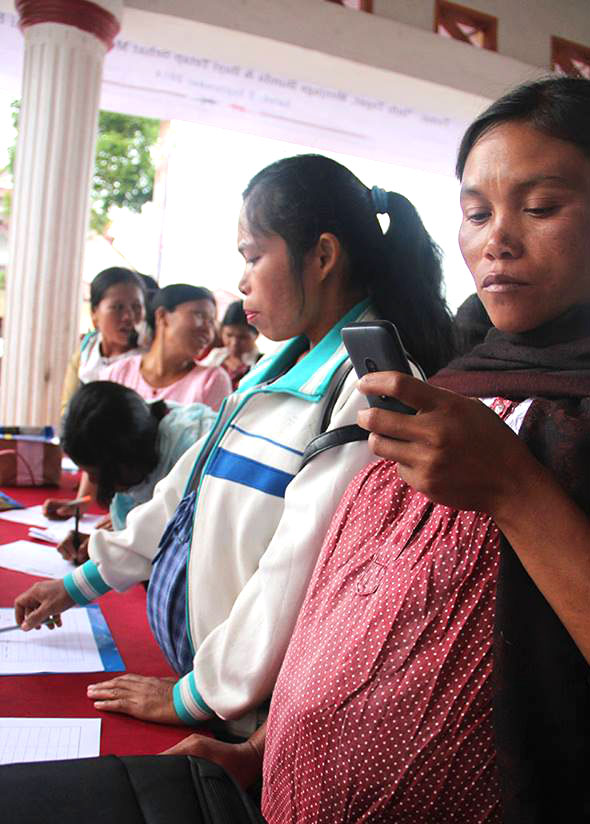Semarang, Indonesia—When Nina was pregnant with her first child, she developed dangerously high blood pressure. The 38-year-old was suffering from pre-eclampsia, a condition with potentially life-threatening consequences for her and her baby.
Between 12% and 25% of maternal deaths globally are attributed to conditions in which the mother’s blood pressure is elevated. If left untreated, pre-eclampsia can become more severe, with headaches, blurred vision, dizziness and severe abdominal pain. If it progresses to the most dangerous form of the disease, eclampsia, women can develop seizures and die.
On her delivery date, Nina’s midwife referred her to a nearby hospital because of her high blood pressure. Fortunately, her first son was born healthy, by cesarean section.
Sadly, over the next six years, Nina experienced three miscarriages.
By her fifth pregnancy, Nina and her husband Hengki had moved to Semarang, the capital of Central Java, Indonesia. Nina’s neighbor Ratna took her to a local health center where she could take advantage of the antenatal care provided at the facility.
Ratna is a volunteer trained by the U.S. Agency for International Development’s Expanding Maternal and Neonatal Survival (EMAS) program, which is led by Jhpiego. Through the EMAS program, she learned to monitor pregnant mothers, prepare them for labor and accompany them to their midwife or local health facility.
As part of this program, Ratna invited Nina to the launch of SMSBunda in Semarang. Funded by the GE Foundation and administered by Jhpiego, SMSBunda is a text messaging service that provides timely health care messages to pregnant women and new mothers before and after they give birth.
At the launch, Nina sat with Ratna and listened to health care providers speak about common dangers during pregnancy. She was surprised to hear them describe some of the symptoms she had experienced in her first pregnancy and subsequent miscarriages.

She quickly signed up to receive SMSBunda messages on her cell phone.
The information Nina received from SMSBunda was relevant and timely throughout her pregnancy. She learned about the importance of nutrition and potentially dangerous symptoms to watch for as her pregnancy progressed.
SMSBunda texts also reminded her to visit her health facility for routine antenatal care checkups.
In her fourth month of pregnancy, Nina began to notice her feet and hands swelling. She received a text right around that time, describing similiar symptoms and the signs of a pregnancy-related hypertensive disorder, pre-eclampsia.
Nina went to her health facility, and last summer, her second baby—another boy—was born without complications.
When Nina was worried that she wasn’t producing enough breast milk for her growing baby, the text messaging service quickly eased her mind and set her on the right course: Drinking more water might help produce more breast milk.
Today, Nina is an active volunteer at her community’s maternal and child health post, and she helps promote SMSBunda to pregnant mothers in her community. “I want them to benefit from SMSBunda,” she says. “There is a lot of information in the villages, but SMSBunda has proven to be right and accurate.”



